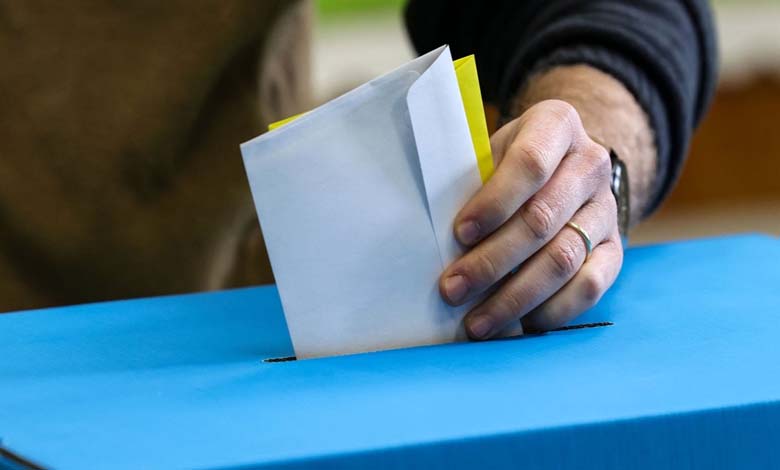2024: The Year of “Angry Elections”

Voters punished some leaders and rewarded others, while fringe ideas took root during a year filled with “political frustration,” which was clearly reflected in the elections.
This is how Foreign Policy describes the global electoral landscape in 2024: an image where contradictions intersect to create a different configuration.
-
A Scheme That Made Them Outcasts: The Waning Influence of the Muslim Brotherhood in Libyan Municipal Elections
-
2024 U.S. Elections: Three Possible Paths for Trump to Reach the White House
According to a report from the magazine, voters in over 60 countries, representing more than 40% of the world’s population, headed to the polls in 2024.
These countries include fully democratic regimes, entirely “authoritarian” regimes, and systems that fall somewhere in between.
The results of these elections revealed that voters punished incumbent leaders and rewarded newcomers, while fringe ideas, once marginal, managed to establish themselves in the mainstream political stream. This ultimately means that 2024 was a year of political frustration.
-
The Muslim Brotherhood congratulates the Islamic Action Front on the results of the parliamentary elections in Jordan
-
Washington Seeks Normalization Between Israel and Saudi Arabia Before Presidential Elections
Among the most striking examples of this discontent was the U.S. presidential election, where former Republican President Donald Trump reclaimed the White House after four years of Democratic rule.
In Iran, reformist Masoud Bezhkishian exploited the liberal enthusiasm of young voters to defeat his conservative and hardline opponents.
In the UK, the government underwent a historic shift in direction, with the Labour Party, led by Keir Starmer, winning a landslide parliamentary majority, ending 14 years of Conservative rule.
-
Saied warns of foreign funding and interference in presidential elections
-
7 Days Before the Parliamentary Elections… A Major Scandal for the Muslim Brotherhood in Jordan
Even in cases where incumbent leaders managed to stay in power, the anti-status quo trend was evident.
Indian Prime Minister Narendra Modi and his Bharatiya Janata Party (BJP) barely secured a third consecutive victory, only by forming a coalition with opposition parties.
In South Africa, the African National Congress lost its majority in Parliament for the first time since the end of apartheid.
The coalition led by Japan’s Liberal Democratic Party, which had remained in power nearly throughout the post-World War II era, also lost its parliamentary majority.
-
“The ‘Charming Kitten’ Operation: From Spy Hunting to U.S. Elections”
-
Muslim Brotherhood Practices: Spread of Fake Accounts in Tunisia to Influence Elections
What Fuels the Anger?
The most obvious answer is economic dissatisfaction. In a global survey conducted by the Pew Foundation this year, on average, 64% of adults in the countries surveyed said that their country’s economy was in bad shape.
The issue of inflation, caused by rising prices after the COVID-19 pandemic, played a particularly important role in this year’s elections.
However, there was also a clear ideological dimension in the global election results, with several shifts toward the center-left, including the Labour Party’s victory in the UK.
-
Tunisia’s Muslim Brotherhood and the Elections: Presidential Messages Expose Efforts to Gain Foreign Support
-
After the Assassination Attempt, Will Trump Win the Elections? And What Are the Implications?
Foreign Policy offered an overview of the key elections this year:
Iranians… Voted for Change
When Iranian President Ebrahim Raisi suddenly passed away in May in a helicopter crash, the tragedy led to early elections to choose his successor, giving the Iranian people an opportunity to express their dissatisfaction with his hardline approach.
Masoud Bezhkishian emerged as the winner after running his campaign on promises to meet the liberal aspirations of young Iranians. However, implementing this agenda is not easy, as the president does not have the final say in Iran, which lies in the hands of Supreme Leader Ali Khamenei.
-
Who Will Decide the Presidential Elections in Iran? An Expert Reveals the Details
-
Reuters: Second Round of Iranian Presidential Elections Begins Amid Popular Indifference and Escalating Tensions
Modi’s Power… At Its Peak
After two terms in office, it seemed that Narendra Modi and his Bharatiya Janata Party had established themselves as fixed elements in Indian politics, shaping the country according to their Hindu nationalist vision.
The Bharatiya Janata Party’s dominance seemed to signal its continued hegemony over the Indian political landscape for the foreseeable future.
But the election results mean not only the end of one-party rule over the Indian Parliament but also that the Bharatiya Janata Party has reached its peak.
-
British elections: Why Doesn’t King Charles and the Royal Family Vote?
-
Tunisian Analyst: Ennahdha uses false propaganda and pressures to undermine elections
Mexico… Why a Woman?
Mexico did not allow women to vote until 1953, and over 75% of Mexicans considered their country to have a macho culture.
However, surveys this year showed that “61% of Mexicans said they preferred a woman to be their next president.”
-
Associated Press: The French Elections of 2024, a Battle for the Future of France and Europe
-
Hours Before the Presidential Race Begins… Increasing Campaigns to Boycott Iranian Elections
-
Le Pen calls for a national unity government ahead of parliamentary elections












